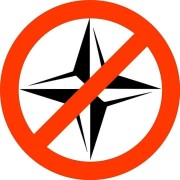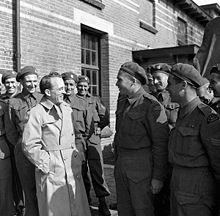by Jérôme Skalski
Etienne Balibar: “A period of intense debate on Marxist philosophy”
- The philosopher Etienne Balibar reflects on Louis Althusser, who with the publication of For Marx was one of the main participants in the conceptual and intellectual debate within Marxism in the 1960s and 1970s. Etienne Balibar was Louis Althusser’s student and disciple and is the author of the study “On the fundamental concepts of historical materialism” which was published in Reading Capital in 1965.
Fifty years ago, Althusser’s For Marx was published, and under his editorship, Reading Capital. What was the context of the debate at the time?
Etienne Balibar: To put things very quickly, I’ll say that your question has both an intellectual and even academic aspect; and an ideological and political aspect. I belong to a generation that entered the Ecole normale supérieure [grande école for training secondary school teachers] in 1960. From a historical point of view, this isn’t unimportant. In our group, which formed around Althusser little by little, there were students of course, but also disciples. People who were a little older, like Pierre Macherey, and people who were a little younger, who arrived just afterwards, the future Maoists, like Dominique Lecourt. That stretched out over five or six years.
So, on the one hand, 1960 was two years before the end of the Algerian war, and it was the year, give or take a few months, when Jean-Paul Sartre’s Critique of Dialectical Reason was published.
We’d been politicized by the Algerian war. We were all activists in the National Union of Students of France, which was the first French union to undertake meeting the Algerian unions that were linked to the National Liberation Front, to try and coordinate anti-war activity. This context wasn’t only one of intense politicization and mobilization, but also one of very lively internal conflict. The basis of our politicization was rather that of anti-colonial mobilization, and consequently was anti-imperialist. The social dimension existed, but it came a little bit on top of the rest.
On the other hand, it was a period of intense debate on Marxist philosophy in which an undeniable role was not only played by the Communist Party’s Marxist philosophers, but also by important Marxist philosophers who either were no longer members of the Communist Party, like Henri Lefebvre, or belonged to non-communist Marxist tendencies. And then there was Jean-Paul Sartre, who described himself as a fellow traveler and who had just published this big work in which he undertook the refoundation of Marxism, and in which there figured, in the introduction, the famous phrase that is often quoted incorrectly: “Marxism remains the philosophy of our time. We cannot go beyond it.”
I don’t say that all the philosophical work in France was on Marx. That would be completely false. But let’s say that the debate on Marxism was really and simultaneously very visible, very intense, very passionate, and very interesting.
This was also the period when the Communist Party decided to organize a center of studies in Marxist research, with reviews like La Pensée [Thought] and La Nouvelle Critique [New Critique]. It decided to organize the Weeks of Marxist Thought.
To give you an idea of the period, I’ll talk about 1961, the year that followed the publication of Sartre’s book. The main event was the Week of Marxist Thought for 1961. It featured a debate between Sartre and our own director of the Ecole normale supérieure, Jean Hippolyte, the famous Hegelian specialist, on the one hand; and Roger Garaudy, representing the official philosophical line of the French Communist Party, and Jean-Pierre Vigier, a former member of the Resistance, physician and philosopher, and member of the Central Committee, on the other hand.
This debate was held in the great hall of the Maison de la Mutualité in Paris, which was packed full. It was an enormous event. Althusser was an agrégé teacher of philosophy, and was the coach or tutor charged with preparing us for the agrégation exam. Obviously, his courses weren’t on Marxism, but on all sorts of other subjects. However, he had begun publishing in La Pensée in 1961, an initial article was followed by several others, and they immediately aroused a lively debate inside and outside the Communist Party. This immediately attracted our interest. We went to meet him and we proposed creating a working group, which progressively became a little team. Of course, it didn’t last long. Even before 1968, it didn’t stand up to the rather intense internal tension, but for several years we worked together systematically on both Marxism and the French philosophy of the period, where the big event to us was the birth of structuralism. We organized a public seminar that went on all year. It was immediately published. At that time, Althusser’s influence was at its height in a certain section of the Marxist-influenced or Marxist leftist intelligentsia in France.
What was the orientation of Louis Althusser’s thought?
Etienne Balibar: I don’t know if I can do a good job of summing things up. First off, even though Althusser did a self-criticism later on to say that, in a certain way, he had forgotten politics, I think that, right from his first articles, there were two dimensions to Althusser’s undertaking, political and philosophical. Obviously, for many young Marxists and even young philosophers more generally, one of the most attractive aspects (and justly so) of Althusser’s undertaking was that he didn’t want to sacrifice either of the two aspects to the benefit of the other.
On the one hand, he wanted to make Marxism a great philosophy, and on the other hand, he had a very political conception of philosophy in which Marxism was – as Marx’s 11th thesis on Feuerbach says – not only a means of interpreting the world, but also of changing it.
All this may seem a bit distant today, but his contribution was organized around structuring two aspects of Marxism, which Stalin had defined in a famous brochure [Dialectical and Historical Materialism, 1938], which of course dogmatized things, but which I think had a great influence on Althusser’s mind. On the one hand, dialectical materialism, the philosophical aspect of Marxism, and on the other hand, historical materialism, that is to say, the theory of history, and consequently the theory of politics and of social change.
Wasn’t Spinoza a thinker of radical democracy, too? Philosophically, is Althusser’s Marxism a return to Spinoza?
Etienne Balibar: Althusser admired the Spinoza of the Theologico-Political Treatise. But that wasn’t the aspect that interested him the most. You’re perfectly right to say that Spinoza’s thought was radically democratic. This is an aspect that came to the fore quite a while ago, and which has been taken up by very different philosophers, some of whom indeed come from Marxism. However, this wasn’t the aspect that interested Althusser. Not because he was hostile to it, but he basically thought that radical democracy was a transition, an intermediary stage towards the dictatorship of the proletariat. He was a very orthodox Marxist on this score.
The aspect of Spinoza that he emphasized concerned the theory of ideology. With Spinoza, we get the first great materialist critique of ideology. Althusser defended a paradoxical thesis. I can understand that it deeply shocked many Marxists of the time but, on the other hand, it was also very attractive to some of us. The idea was that the concept of ideology was a fundamental aspect of Marx’s theoretical revolution. Not just the critique of bourgeois ideology, but the critique of ideology in general. That seemed to him to be a very important point in the debates within communism at the time, which he characterized as dominated by the ideological complex that he termed economism and humanism. He thought that the Marxist tradition on ideology was weak and that Marx, although he’d had the genius to invent the concept of ideology, had a very poor analysis of ideology.
So, in Spinoza he found the elements of a materialist critique of ideology which was neither Feuerbachian nor Hegelian nor attached to a philosophy of history, nor to the concept of the alienation of Man and of human essence. All that was quite compatible with what was called Althusser’s scientism, as he expressed it in the idea of an epistemological break, and it led him to the neighborhood of structuralism. Althusser very quickly condemned these positions in his Elements of Self-criticism (1974).
What remains today of Althusser’s philosophical contribution and of the debates of the time?
Etienne Balibar: My point of view, obviously, is that we need a critique of capitalism that is up to the demands of the present. The demands of the present is globalization, the inextricably mixed nature of the economic problem and the ecological problem. It’s the emergence of new forms of governance, as they say, which are partly and simultaneously infra-nation-state and supra-nation-state or post-nation-state. It’s a generalized re-working. We need a new critique of political economy and of politics.
Not only is Marx not superfluous to this undertaking, but he’s absolutely indispensable. He himself will come out of this undertaking changed. Althusser, in one of the last texts that he undertook to write, designated Marxism as a finite theory. Obviously, it was a formidable play on words at the time. Everybody was talking about the end of Marxism. Althusser said: this isn’t the end of Marxism, but he emphasized the need for Marxism to define its own internal limits, its own historical limits. It can be said that he became more historicist than he had initially been, in a certain way.
We’ve already entered a new phase in the interpretation of Marxism which, inevitably, is perhaps also such a radical phase of transformation of Marxism that it will certainly come out completely unrecognizable. From this point of view, what happened in the mid-1960s is very interesting, and not only because of theoretical suggestions that were made at the time and which have not all been explored. In some ways, Althusser’s self-criticism had negative effects. But above all because of the fact that Althusser wasn’t the only protagonist in this debate on the refoundation of Marxism. In a certain way, it was the great common enterprise of Marxists in different countries in the middle of those years.
For me, Althusser has a kind of biographical privilege, but there isn’t any absolute privilege. What he was able to contribute can’t be measured and discussed if you don’t broaden the angle of vision.
In the 1960s, there was, in the framework of German Marxist criticism, a new reading of Capital which owes a lot to the Frankfurt School and which was particularly centered on the phenomena of social alienation linked to the generalization of the commodity form. That was something that Althusser didn’t know well or which he rejected.
There were the different currents of Italian workerism, whose grand figure is Mario Tronti, and who was writing, at exactly the same time as Althusser and his group, a book of re-reading of Capitalwhich, on some points overlaps Althusser and which on other points diverges radically.
But you could broaden the perspective more with the currents of critical Marxism in Latin America, and then with the tradition of Marxist history illustrated in the English-speaking world by Eric Hobsbawm, Maurice Dobb, Christopher Hill and Perry Anderson.
If you go back to 1965, you see a Marxism in full effervescence, in full contradiction with itself. On the one hand, the dead weight of the crisis of state communism, and on the other hand, the revolutionary hopes. In the middle of all that, a capacity to renew the links between Marxist philosophy and living philosophy. We can’t begin anew in exactly the same way. But that certainly contains a positive notion for today.
Ecrits pour Althusser.
Etienne Balibar is professor emeritus at Paris-Ouest Nanterre-la Défense University and is a professor of English, French and comparative literature, affiliated with the anthropology department at the University of California-Irvine in the United States. He’s the author of Ecrits pour Althusser, published by La Découverte in 1991. Among his latest works is Equaliberty: Political Essays published by Duke University Press in 2014.








